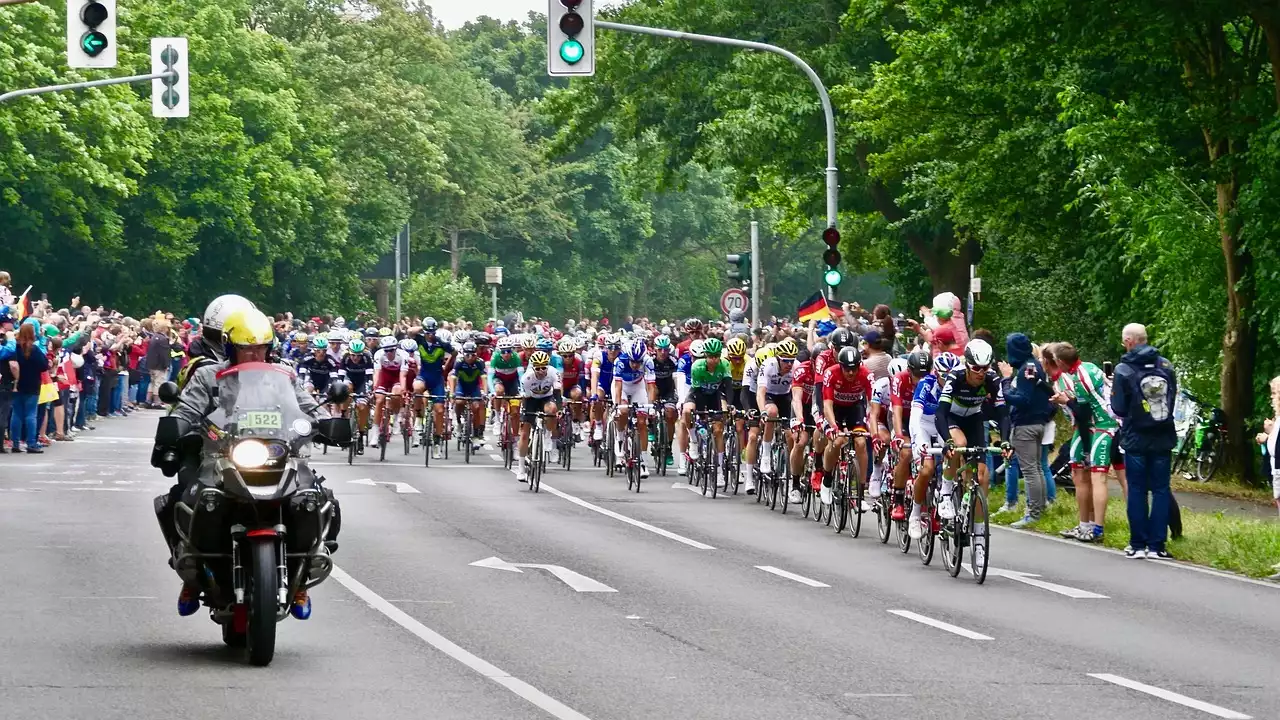Armstrong's Rise to Cycling Success
Lance Armstrong was born on September 18, 1971, in Plano, Texas. He was raised by his mother, Linda, and grew up in a single-parent household. Armstrong began his career as a triathlete before turning to cycling. In 1992, he joined the Motorola cycling team, where he quickly made a name for himself as a talented rider. Armstrong's breakthrough came in 1993 when he won the World Road Race Championship in Norway. This victory placed him on the international cycling map, and he quickly became a favorite for the Tour de France.
Armstrong went on to win the Tour de France seven times, from 1999 to 2005, cementing his status as one of the greatest cyclists of all time. His victories were not without controversy, with rumors of doping swirling around the sport. Armstrong vehemently denied any use of performance-enhancing drugs and even sued those who accused him of doping. Despite the accusations, Armstrong was still seen as a hero, a cancer survivor who had come back from the brink of death to achieve greatness.
The Doping Allegations and Controversy
In 2004, Armstrong was accused of using performance-enhancing drugs by former teammate, Frankie Andreu, and his wife, Betsy. Armstrong vehemently denied the allegations, and the couple was sued for defamation. The lawsuit was eventually settled out of court, with the Andreus issuing a public apology. However, the accusations did not end there. In 2010, former teammate Floyd Landis made similar allegations, claiming that Armstrong had introduced him to doping practices. Armstrong continued to deny the accusations, even going so far as to accuse Landis of being a liar and a cheat.
The doping allegations gained traction in 2012 when the United States Anti-Doping Agency (USADA) launched an investigation into Armstrong's alleged use of performance-enhancing drugs. The investigation revealed that Armstrong had been involved in a sophisticated doping program throughout his career, and that he had used banned substances, including EPO, testosterone, and blood transfusions, to enhance his performance. In 2013, Armstrong admitted to doping during an interview with Oprah Winfrey, stating that he had used performance-enhancing drugs throughout his career.
The Downfall of Lance Armstrong
The revelation that Armstrong had been doping throughout his career was a massive blow to the cycling world. Armstrong was stripped of his seven Tour de France titles and banned from professional cycling for life. His achievements were tarnished, and his legacy was forever changed. Armstrong's sponsors dropped him, and he became a pariah in the sports world. The once-beloved athlete had become a symbol of the dark side of professional cycling.
Armstrong's downfall was not just limited to the sports world. He had also been a prominent philanthropist, raising millions of dollars for cancer research through his foundation, Livestrong. However, the doping revelations had a significant impact on the foundation, with many donors withdrawing their support. Armstrong resigned as chairman of the foundation in 2012, and Livestrong's reputation was also damaged.
The Impact on Armstrong's Legacy
The impact of Armstrong's doping scandal on his legacy cannot be overstated. Once seen as an inspiration and a hero, Armstrong was now viewed as a cheat and a liar. His achievements were forever tarnished, and his reputation was irreparably damaged. Armstrong's legacy serves as a cautionary tale about the dangers of cheating in sports and the consequences that come with it.
However, it is also important to acknowledge Armstrong's achievements. He was a remarkable athlete who overcame cancer and achieved greatness on the cycling stage. Armstrong's story is a testament to the human spirit and the power of determination. While his doping scandal is a dark chapter in his legacy, it should not overshadow his many achievements.
Armstrong's Attempts at Redemption
In the wake of the doping scandal, Armstrong has attempted to redeem himself. He has publicly apologized for his actions and has worked to rebuild his reputation. Armstrong has also been involved in various philanthropic efforts, including the Livestrong Foundation, which he still supports. However, his attempts at redemption have been met with mixed reactions, with many still viewing him as a cheat and a liar.
The Legal Battles and Settlements
The fallout from Armstrong's doping scandal also led to several legal battles and settlements. Armstrong was sued by various parties, including the US government, for defrauding the US Postal Service, which had sponsored his cycling team. Armstrong settled with the US government for $5 million in 2018. He also settled with the Sunday Times for a reported $1 million after they sued him for libel over his doping denials.
Lessons Learned from the Lance Armstrong Story
The rise and fall of Lance Armstrong offer several lessons for the sports world and beyond. Firstly, it highlights the importance of integrity and honesty in sports. Cheating can have severe consequences, not just for the individual but for the entire sport. Secondly, it shows the importance of transparency and accountability. Had Armstrong been more forthcoming about his doping practices, the fallout may have been less severe. Finally, the Armstrong story highlights the power of redemption. While Armstrong's reputation may never fully recover, his attempts at redemption show that it is possible to come back from even the darkest of scandals.
The Future of Professional Cycling
The doping scandals that have plagued professional cycling for decades have led to calls for reform in the sport. The Union Cycliste Internationale (UCI) has implemented various measures to combat doping, including increased testing and harsher penalties for offenders. However, there is still much work to be done to restore the credibility of the sport.
The rise and fall of Lance Armstrong may be a cautionary tale, but it also highlights the need for change in the cycling world. The sport must prioritize transparency, integrity, and accountability if it is to regain the trust of fans and sponsors alike.









